
Earning a black belt degree in Brazilian jiu-jitsu marks the start of a new chapter of continued learning and development. These BJJ black belt Degrees represent more profound expertise and commitment.
It’s essential to understand the different belt degrees in Brazilian Jiu-Jitsu and how long it takes to attain them. Continue reading this guide for more valuable information.
BJJ Black Belt Overview

Earning a black belt in Brazilian Jiu-Jitsu represents years of dedication, intense training, and mastery of the art.
The journey doesn’t end there, as multiple degrees within the black belt signify further development.
Organizations like the SJJIF and the IBJJF have different criteria for progressing through these degrees, adding complexity to the journey.
Understanding the commitment required to achieve and maintain a black belt offers a valuable perspective on your training journey.
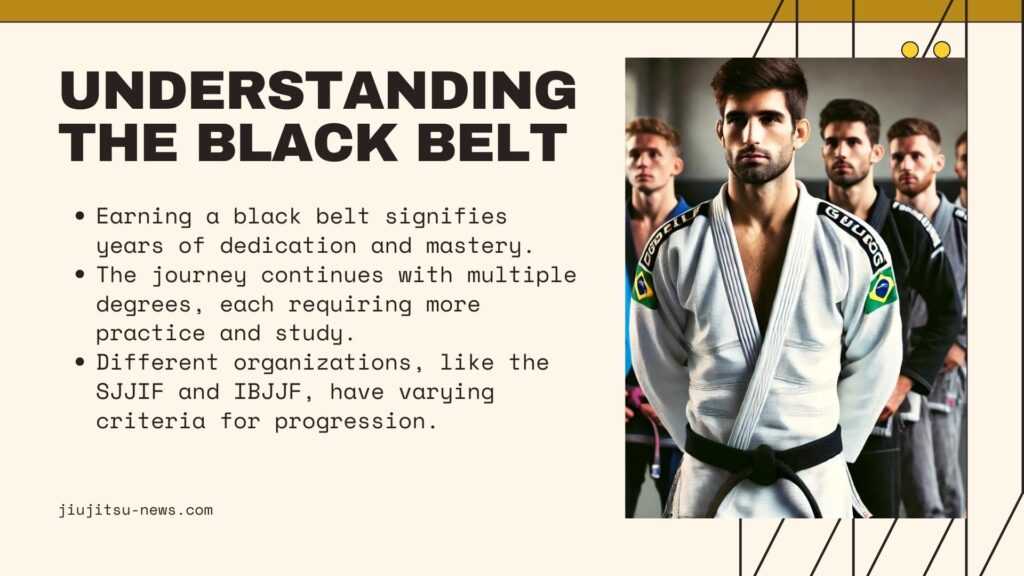
Degrees of Black Belt in Brazilian Jiu-Jitsu
Once BJJ practitioners earn their black belt, they can progress through additional degrees, each marking their continued commitment and expertise.
There are ten degrees of black belts, each requiring more years of practice and study.
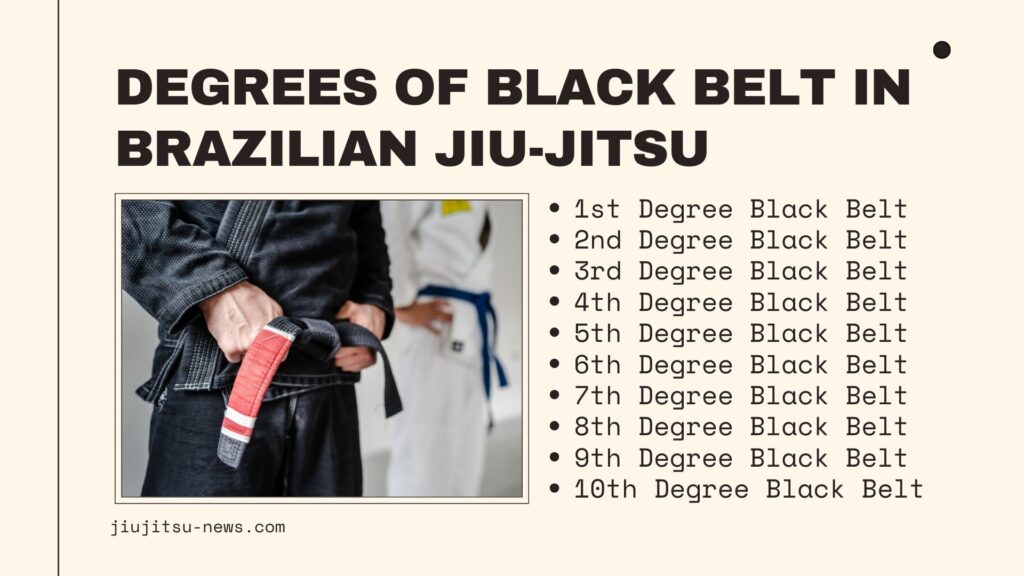
1st Degree Black Belt
The journey to a 1st-degree black belt is long and challenging.
According to the SJJIF, reaching this level takes about 11 years of practice after earning a standard black belt.
The IBJJF requires even more time, with a minimum of 13 years.
This degree marks a significant milestone, demonstrating advanced skills and deep understanding.

2nd Degree Black Belt
Reaching the 2nd-degree black belt requires even more dedication.
The SJJIF sets the requirement at 14 years of practice, while the IBJJF requires 16 years.
This degree reflects a higher level of mastery and a more profound commitment to the art of Brazilian Jiu-Jitsu.
3rd Degree Black Belt
The 3rd-degree black belt is another step up in the BJJ hierarchy.
According to the SJJIF, achieving this rank can take 17 years or more, and according to the IBJJF, 19 years.
This degree is awarded to those who have shown exceptional skill and dedication over many years.
4th Degree Black Belt
According to the SJJIF and IBJJF, the 4th-degree black belt is an advanced level achieved after at least 22 years of practice.
This rank signifies a high level of expertise and a significant contribution to the BJJ community.
5th Degree Black Belt
The 5th-degree black belt represents a significant achievement in BJJ. The SJJIF requires 27 years of practice, while the IBJJF requires 25 years.
Practitioners at this level are highly respected and often serve as mentors and leaders in the BJJ community.

6th Degree Black Belt
Achieving the 6th-degree black belt is a testament to decades of dedication. The SJJIF requires 32 years of practice, and the IBJJF requires 28 years.
This rank is awarded to those who have significantly contributed to the art and deeply understand its techniques and philosophy.
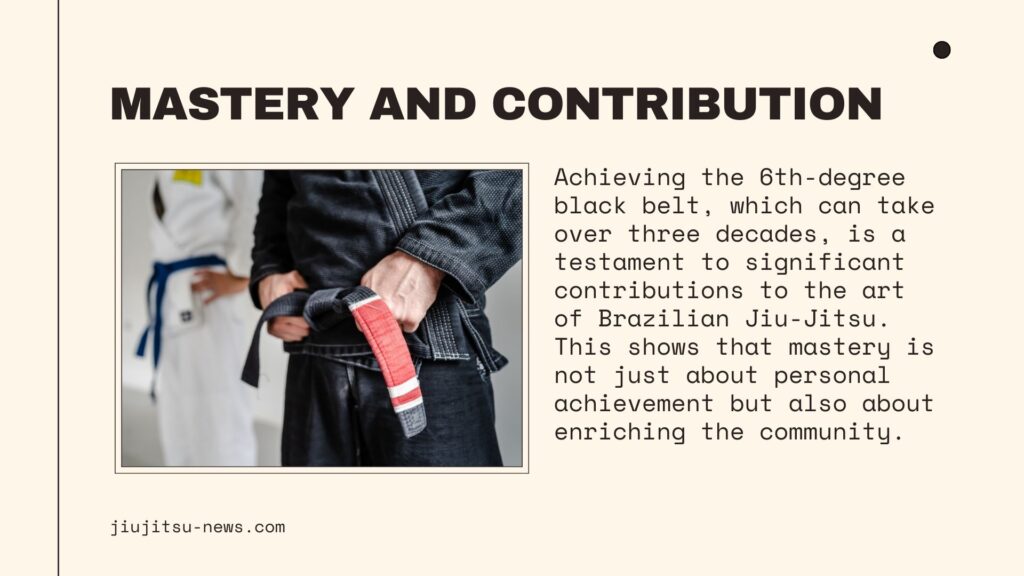
7th Degree Black Belt
The 7th-degree black belt is a prestigious rank known as the coral belt.
According to the SJJIF, it can take up to 39 years of practice, and according to the IBJJF, 32 years.
This rank is reserved for true masters of the art.
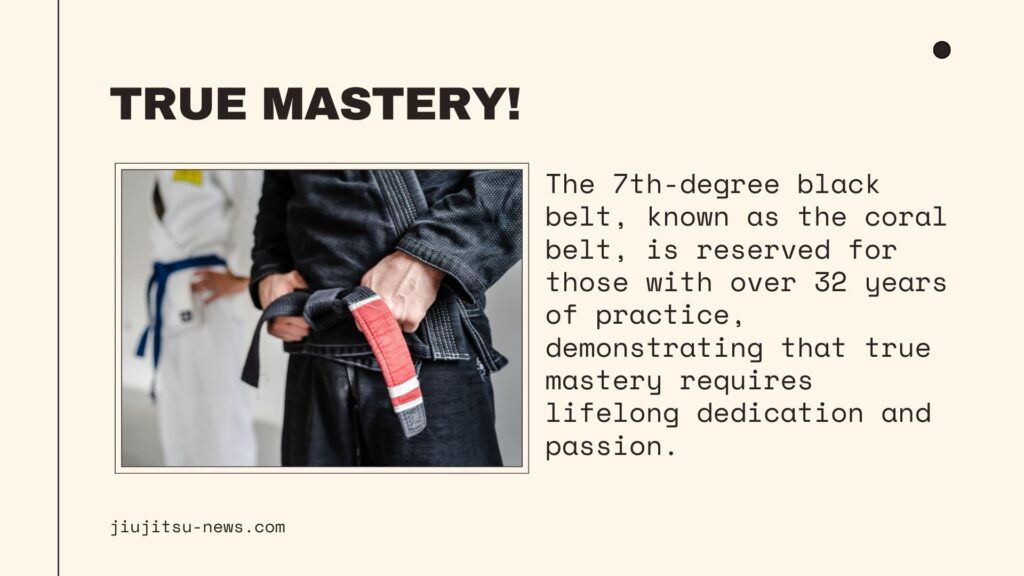
8th Degree Black Belt
The 8th-degree black belt is another coral belt level, requiring 46 years of practice per the SJJIF and 39 years, according to the IBJJF.
This rank is held by those who have dedicated their lives to mastering and teaching Brazilian Jiu-Jitsu.

9th Degree Black Belt
The 9th-degree black belt is the highest level in BJJ, marked by a red belt.
It signifies a lifetime of dedication, with the SJJIF requiring 56 years of practice and the IBJJF 49 years.
This rank is awarded to grandmasters who have made extraordinary contributions to the art.
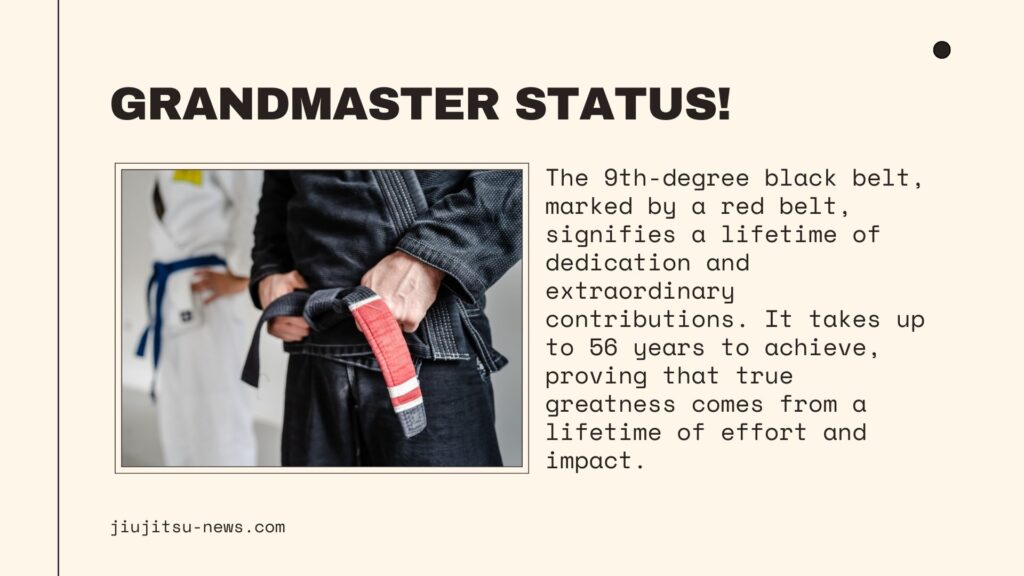
10th Degree Black Belt
The 10th-degree black belt is the pinnacle of Brazilian Jiu-Jitsu, representing the highest level of mastery.
It requires a lifetime of dedication, with the SJJIF setting the requirement at 71 years and the IBJJF at 64 years.
Only a few individuals ever reach this level, and they are considered legends in the BJJ community.
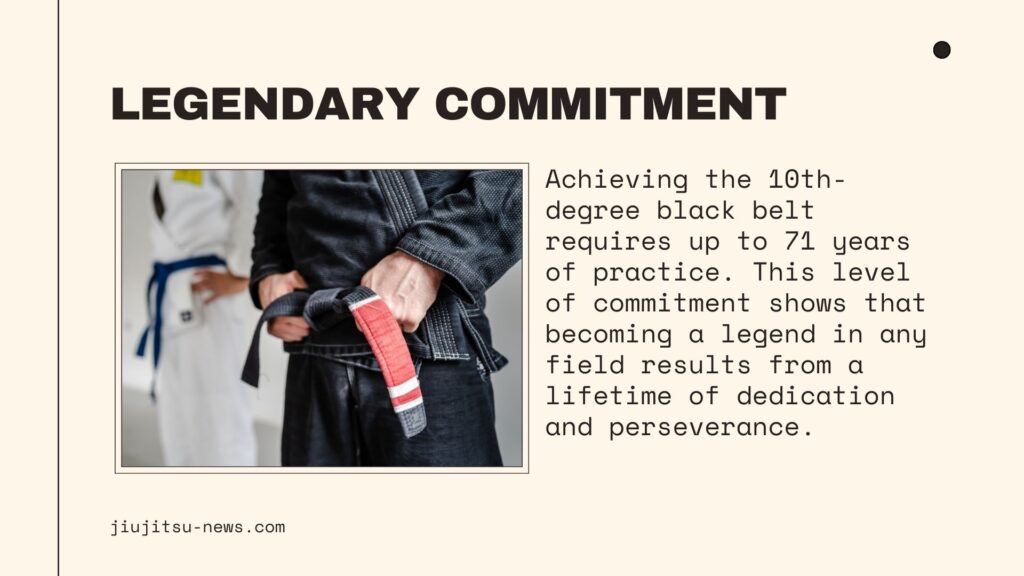
Final Thoughts

The Brazilian Jiu-Jitsu belt system signifies a journey of growth and mastery. Earning a black belt and its degrees represents dedication, practice, and commitment.
Each degree symbolizes advanced skills and contributions to the BJJ community. Whether you’re beginning or progressing, pursuing higher degrees should motivate you to deepen your practice and knowledge.
Embrace challenges, celebrate milestones, and contribute positively to Brazilian Jiu-Jitsu.
It’s not just about the rank you achieve but the legacy you leave and the growth you inspire in others.
Related: Prove your mastery of Brazilian Jiu-Jitsu with our Ultimate Quiz! Test your knowledge of techniques, famous fighters, and more. Start the challenge now!



